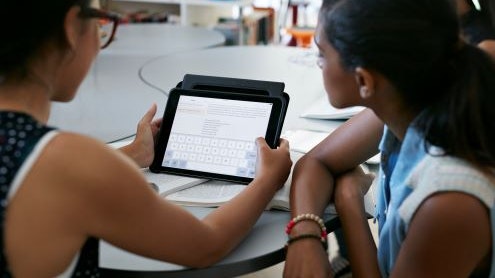Homepage
•
Learning Library
•
Blog
•
4 Action Steps to Prepare New Teachers to Use Edtech
Expand breadcrumbs
Expand breadcrumbs
- Learning Library
- Blog
- 4 Action Steps to Prepare New Teachers to Use Edtech
- Homepage
- •
- Learning Library
- •
- Blog
- •
- 4 Action Steps to Prepare New Teachers to Use Edtech
4 Action Steps to Prepare New Teachers to Use Edtech
By Arlene C. Borthwick, Teresa S. Foulger and Kevin J. Graziano
September 21, 2020








